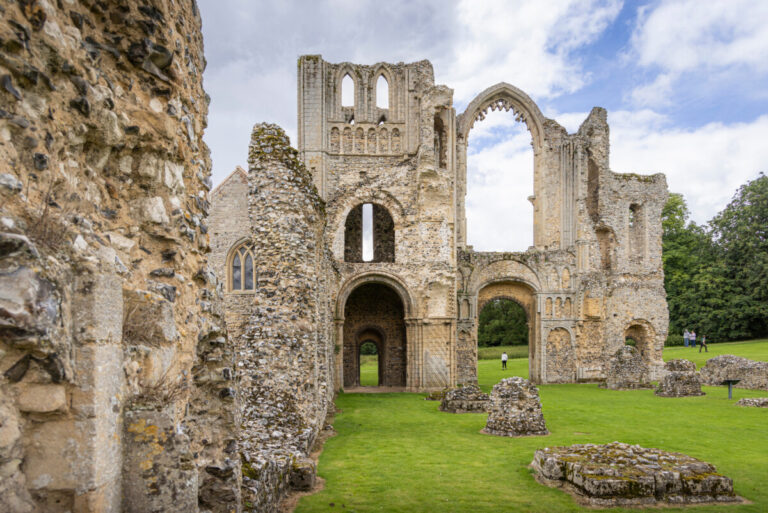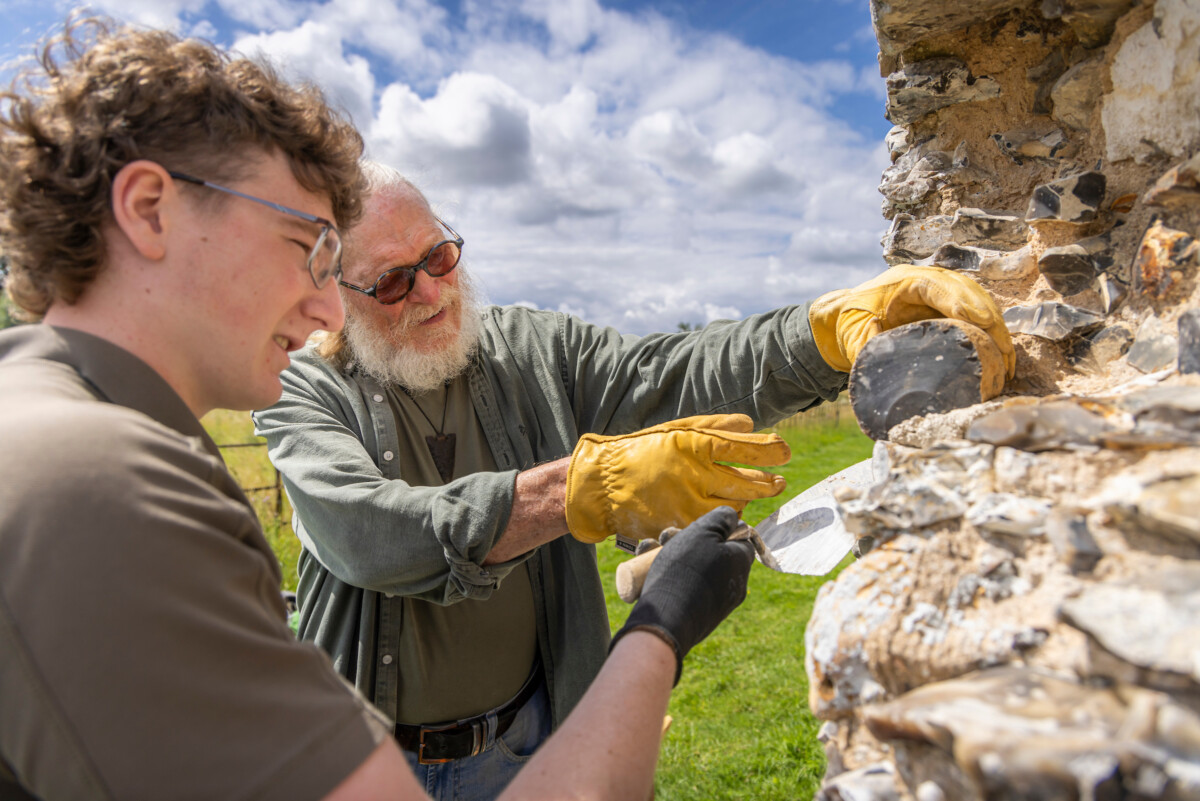English Heritage to launch apprenticeship programme after largest ever donation of £11mn

A major donation of £11mn from the Hamish Ogston Foundation has today (10 August) seen English Heritage announce a new apprenticeship programme and the creation of a heritage skills centre, aimed at saving endangered heritage skills and crafts.
The donation is the biggest English Heritage has ever received and will underpin the apprenticeship programme, which will pass on flint-working skills to the next generation.
The programme will see the establishment of a heritage skills training centre in East Anglia, the creation of an inhouse ‘heritage crafts team’ at English Heritage, and safeguard the future of 34 flint castles and abbeys in the East of England including Audley End House, Hadleigh Castle, Caister Roman Fort and Framlingham Castle.
Advertisement
East Anglia has some of the most significant conservation needs as well as the most severe shortage of heritage craft skills in the country, according to English Heritage. Flint-knapping is listed as endangered on the Heritage Crafts Red List. This major grant from the Hamish Ogston Foundation will allow English Heritage to arrest that skills decline by developing new apprenticeships in flint and stone masonry and heritage brickwork. The seven year programme will see the training of 48 young heritage skills apprentices along with 3 professional apprentices.
The new skills training programme will specialise in conservation in flint and rubble and ensure that the few remaining skilled craftspeople – like 81 year old John Lord – can pass down their craft to a younger generation.

As well as the formal apprenticeships which will be developed over the next 12 months, the centre will work to raise the profile of heritage skills as a career choice by welcoming local primary and secondary school children through school visits and onsite Conservation in Action activities. It will also provide hands-on training sessions to 450 Further Education construction students to broaden their understanding of heritage conservation techniques.
Gerard Lemos CMG, Chair of English Heritage, said:
“Both the landscape of East Anglia and the lives of its people have historically been defined by flint, with skills apprenticeships passed down over generations. That’s no longer happening, and both the buildings and the people have been the poorer for it. With the extremely generous support of the Hamish Ogston Foundation for which we are immensely grateful, our new skills apprenticeships will provide a radical new approach to address the decline. This investment is not just in the past – through saving English Heritage sites as well as homes and churches across the region – but in the future, by providing fulfilling careers for this, and subsequent generations.”
Robert Bargery, Heritage Project Director of the Hamish Ogston Foundation, said:
“Heritage skills like flint knapping are the timeless threads that weave our past with our future. The art of flint knapping is at a severe risk of extinction with only a handful of specialists left in the UK. This latest grant from the Hamish Ogston Foundation to English Heritage will help to secure a new generation of specialists, so that we can combat this skills shortage and ensure that historic buildings at-risk can be preserved for years to come.”
Part of a wider £29mn investment into heritage skills training
The English Heritage grant is part of a wider £29 million investment into heritage skills training in the UK and the Commonwealth by the Hamish Ogston Foundation, which is being announced today. The new funding will also support heritage skills training programmes in partnership with the Commonwealth Heritage Forum, Cathedrals’ Workshop Fellowship and Historic Environment Scotland.
The Hamish Ogston Foundation has now pledged nearly £44 million towards heritage skills training since its establishment in 2019. It is the largest single private donor to heritage skills training in the UK and is now committed to support the training of more than 3,300 conservation trainees in the UK and Commonwealth.







